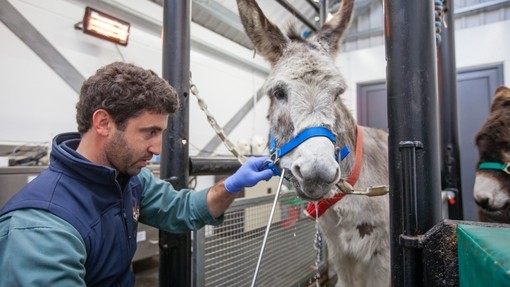
Dentistry guidance and advice for professionals.
Dental disease has the potential to cause significant pain, which may go unrecognised in these stoic animals. Prophylactic dentistry is essential.
Donkeys may have up to 44 teeth. Because they are continual grazers and thrive on a diet of highly fibrous/abrasive food, donkeys have developed teeth that are designed to wear constantly.
It is recommended that all donkeys are checked 1-2 times annually by a vet or qualified equine dental technician, to identify problems including sharp edges and overgrown teeth, which can cause pain and discomfort.
Together, our vets and our qualified equine dental technicians ensure that each of our donkeys gets a regular, thorough dental examination and treatment. They also provide training courses for equine dental technicians wanting to take their exams, and advice and support for vets, vet students and overseas vets.
Our veterinary hospital at Brookfield Farm has a dedicated dentistry area, and dedicated stocks to facilitate the treatment of donkeys. This means donkeys – of all sizes– can be treated quickly and in a clean environment.

Professional association
The British Association of Equine Dental Technicians exists to provide a greater understanding of equine dentistry as well as establishing a recognised examination and code of conduct. Details of exams and a comprehensive list of qualified equine dental technicians near you can be found on their website.
Prevention and quality of life
Dentistry should be prophylactic. A regular programme of routine examinations and care will allow the early diagnosis and treatment of oral and dental disorders and avoid their development into potentially significant pathology.
- Good dental care has proven benefits for the health and welfare of donkeys.
- All donkeys require a regular dental care programme that includes full oral examination, appropriately adapted to the individual and its age.
- A full clinical examination and assessment should be undertaken before treating significant dental disorders, particularly in elderly donkeys.
- Dental disease is an integral component of any quality of life assessment.
- Diets should be modified appropriately to avoid problems of colic, choke (oesophageal obstruction) and weight loss.
Consideration must be given to the quality of life of the donkey when considering any treatment plan. Important questions are:
- What is the overall aim of treatment and what procedures are required?
- Can they be competently undertaken with or without hospitalisation?
- What is the likely recovery period and what will post-procedural function be?
- How will pain and diet be managed?
- What other issues does the donkey present with?
Many clinical situations may have a direct impact on the quality of life of donkeys, with some being life threatening, as described for cases of extreme craniofacial abnormalities in new-born donkeys.
Dental care resources
The third of our courses on equid dentistry is focussed on dental disorders.
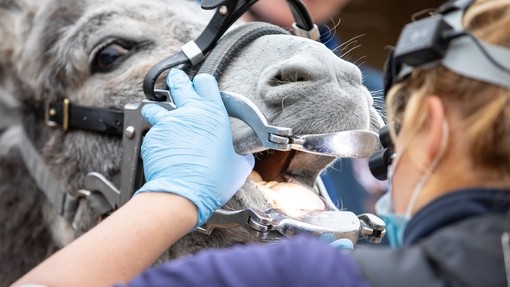
Participants will develop a deeper knowledge of the underpinning theories of equid dentistry and thereby, aid the promotion of practical skill for the prevention and treatment of dental disorders.

In the fourth of our equid dental courses, we explore the most common instrumentation available.
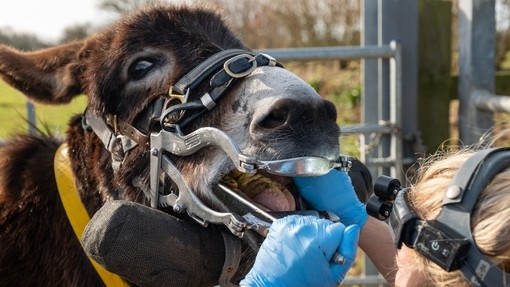
The second of our courses focuses in on the diagnosis of equid dental disease.
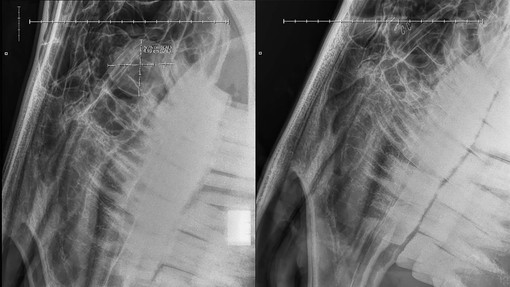
The first in a progressive series of courses designed to establish a scientific, evidence-based approach to equid dentistry.
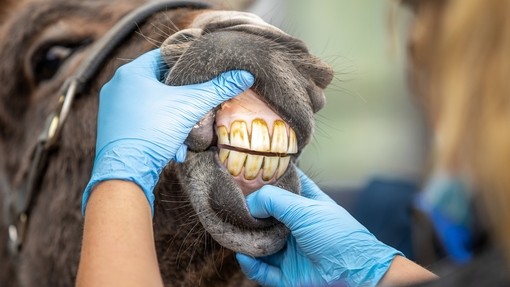
¿Alguna vez se ha preguntado por qué los burros hacen lo que hacen? ¿Alguna vez ha tratado de ayudar a un burro con un problema de comportamiento? ¿Le gustaría hacer más cómoda la vida de los burros a su cuidado? El comportamiento tiene un elemento en todo lo que hacemos con burros y mulas.
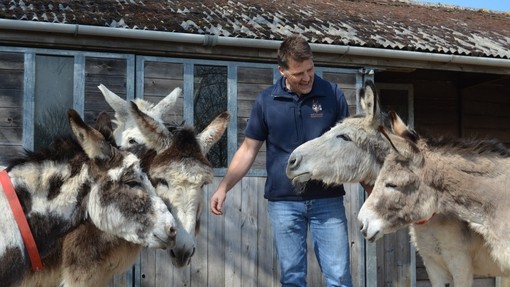
Taking good care of your donkey's teeth is vital for their health and wellbeing. Read our guidance on how to keep them comfortable during dental checks and treatment.
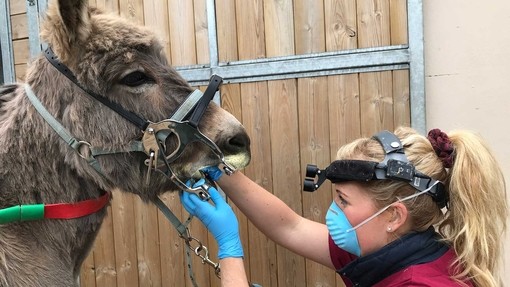
A guide to looking after your donkey's teeth.

Join The Donkey Sanctuary’s Equine Dental Technician as she discusses the common impacts that dental disease has on donkeys.

Read more about the collaborative process between our vets and Equine Dental Technicians in removing two fractured incisors of young gelding.
